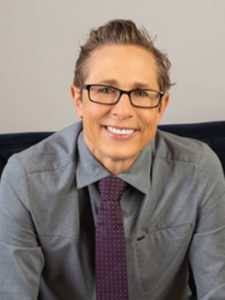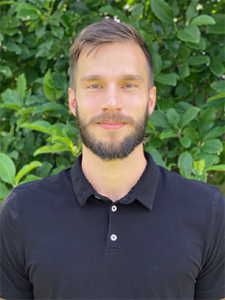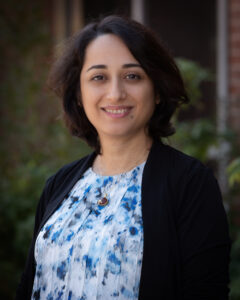Professor M Metzger, assistant professor Pedro Huebner, and assistant professor Samira Shiri from the department of mechanical engineering here at the U have been selected to receive Utah Pathway to STEM (UPSTEM) faculty fellowships. These three faculty members will engage in a bi-weekly professional learning community designed to build capacity for implementing inclusive teaching practices and deepening understanding of the systemic barriers for marginalized populations in STEM.

M Metzger

Pedro Huebner

Samira Shiri
The UPSTEM Faculty Fellowship program is sponsored by the Howard Hughes Medical Institute (HHMI) and aims to build a community of change agents committed to inclusion and equity in STEM. This year’s theme is ‘Humanizing STEM’, and Fellows will discuss scholarly readings on the impacts of racism in STEM, participate in an online course on inclusive teaching practices, and engage in leadership development activities to gain the skills for catalyzing change within their departments and institutions. This group encompasses Tenure-Line faculty, Career-Line faculty and Instructors from a broad range of STEM disciplines and those who do STEM-adjacent work at the University of Utah and Salt Lake Community College.
“Our students not only need to be skilled in the engineering sciences,” said Metzger, “but they also need to be able to function effectively in diverse teams. This includes both appreciating the value of diversity in teams and understanding how to cultivate a sense of inclusivity within a team. One reason I applied to UPSTEM is to learn the knowledge, skill, and ability to teach my students how to do this within their project teams. As Chair of the Teaching Committee, I hope to be able to share my knowledge and experiences with others in the department as well after the completion of the program.”
“I joined UPSTEM to get a better idea of what an ‘inclusive classroom’ looks like,” said Huebner. “We often declare our learning environments as safe and inclusive spaces for all individuals, but we have little training, as engineers, on how to implement that in practice. That’s the skillset that I hope to build with the guidance of the UPSTEM meetings. I am enthusiastic about navigating a range of subjects that go beyond engineering theory, especially with this year’s theme “Humanizing STEM,” which will help me, through my teaching, continue to celebrate individual differences and foster a sense of belonging in the classroom.”
“I believe one big challenge of teaching in classrooms that consist of a wider variety of abilities is to adopt a teaching style in which no students feel bored or overwhelmed,” said Shiri. “One main focus of this fellowship is to promote Transfer students’ success by learning strategies to create a classroom that welcomes all your learners. I hope this training will equip me well to help myself and our ME department to advance the efforts to create a welcoming educational environment for all.”
These three ME faculty members hope to learn from the perspective of others and bring that knowledge back to the department. They are members of the department’s Equity, Diversity, and Teaching Committees, giving them the opportunity to bring what they learn back to the department.
“Our goal is a strategic plan that targets the elimination of all instances of bias, racism, sexism, or exclusion in any form within our department, as well as building a welcoming community and fostering a sense of belonging for everyone,” said Huebner. “Our plan is to lead these committees into a continual evaluation of patterns, trends, structures, and mental models that allow inclusive, equitable, and humanizing learning and working environments to exist, and effectively communicate those to the faculty, staff, and students. Our committees often sponsor workshops and seminars during faculty/staff meetings, student events, and departmental retreats. What we learn from UPSTEM will definitely contribute to the subjects of future events.”
You can find out more on the UPSTEM website.